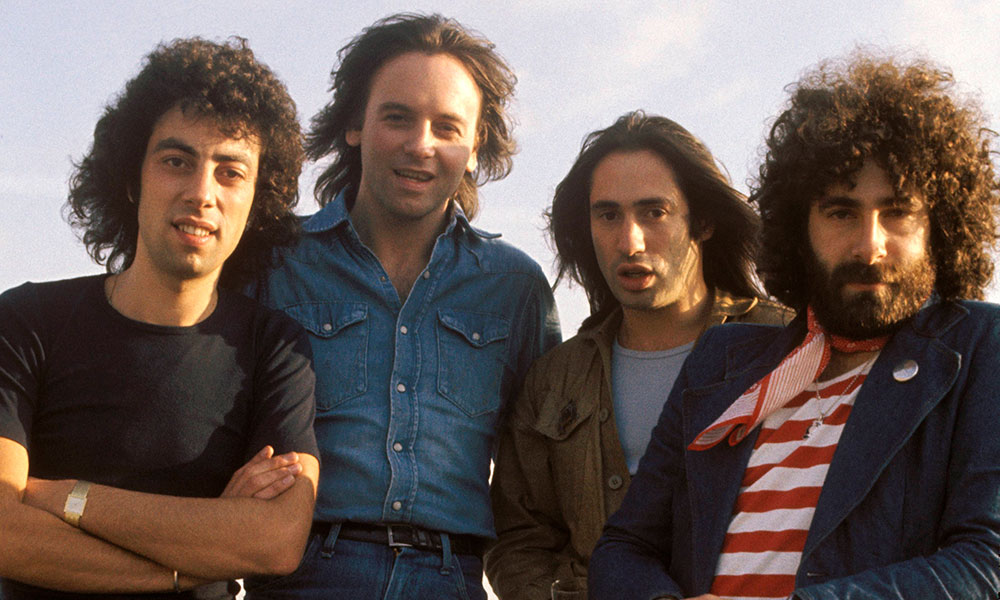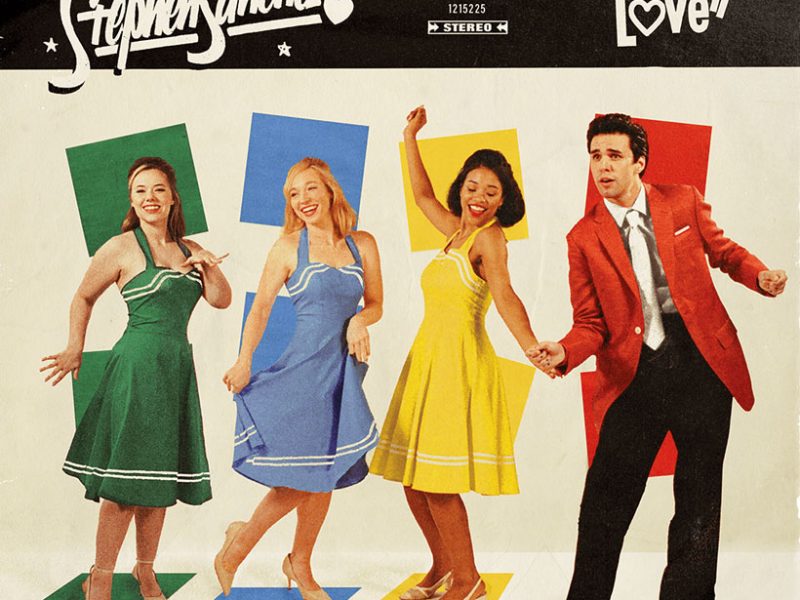The heady experimentation of the 70s was the perfect pop laboratory for the four members of 10cc, who, prior to forming the group, had built up years of experience as session musicians, hit songwriters, and players in other successful bands.
Maverick DJ Jonathan King had instantly spotted the potential of “Donna,” a pastiche of a 50s pop hit, and though 10cc ignored his advice on stage outfits (hot pants, denim or polythene, depending on whose testimony you trust), his UK Records imprint delivered them a UK No.2 smash in the autumn of 1972. While the follow-up, “Johnny Don’t Do It,”, took the parody too far, a third single, “Rubber Bullets,” soared up the British charts to No.1, despite limited radio play due to its timely reference to the political troubles in Northern Ireland. 1973 was a year of consolidation for the band, using their recent chart-topper as a launchpad for their first UK tour and album, the self-titled 10cc, which made No.36. A further single, “The Dean And I,” made UK No.10 that August.
Listen to the 4CD box set Before During After: The Story Of 10cc.
The following year, the band set out on their first US tour, but it was truncated when Kevin Godley fell ill just a few nights in, and was rescheduled later that year, by which time “Rubber Bullets” had been named the Ivor Novello Song Of The Year. While the continued success of singles such as “Wall Street Shuffle” and “Silly Love” – from second album, Sheet Music – should have seen the royalties starting to roll in, band members claim they were still broke. Inevitably, other labels began knocking at their door, and the start of 1975 saw the group sign to Mercury after almost joining Virgin (a deal sidelined at the 11th hour).
10cc had a mixed, unpredictable following. Teenagers loved the catchy tunes and bathed in slick, of-the-moment production techniques, while older fans enjoyed the quirky creativity that underpinned the songwriting. The music press, unsurprisingly, rarely knew what to make of them, but no one was immune to the consistent success being generated at Strawberry Studio.
“Life Is A Minestrone” launched the 1975 album The Original Soundtrack, but it was the album’s second single, “I’m Not In Love” – identified immediately as the standout track, but held back to push further sales of the parent LP – that became the band’s signature song. This rich, multi-tracked ballad, with its construction and recording shared equally between the band members, topped the UK charts in May 1975 and almost made it to the same position in the US, where, up to this point, 10cc’s Billboard success had been patchier. Stuck behind three different US chart-toppers across three weeks, it had to settle for a Stateside peak of No.2, but the song remains a radio staple to this day and swept almost everything else aside at the Ivor Novello Awards the following year. “We knew we had something special,” says Graham Gouldman. “We used to play it over and over again in the studio, with the lights off, lying on the floor.”
Further singles “Art For Art’s Sake” and “I’m Mandy Fly Me” continued to perform strongly in Europe, but there was, by now, a growing disconnect in the band. Fourth album, How Dare You!, was released in January 1976 and live dates continued to punctuate their schedule until, in November that year, Kevin Godley and Lol Crème announced that they were quitting to work on new recordings and launch an instrument branded a The Gizmo (or Gizmotron), a guitar attachment that could hold notes for a longer time than usual and create an approximation of an orchestral sound. The gadget failed to take off, but would turn up periodically on recordings by Godley and Crème (and other artists) for years to come.
Meanwhile, Gouldman and Eric Stewart drafted in drummer Paul Burgess, who had worked with the band on previous tours, and the trio hit the ground running when “The Things We Do For Love” hit UK No.6 in early 1977. The song returned the band to the US Top 5 as well, but it was to prove their last big hit there, despite further success in their homeland across the year, including the No.5 single “Good Morning Judge” and another popular tour (recorded for the Live And Let Live album, released that October). Deceptive Bends, with Gouldman and Stewart writing all the songs, had a lot to prove, but the album went gold on the back of its two hits and made No.3 in the UK.
Touring commitments led to musicians Rick Fenn, Tony O’Malley, Stuart Tosh, and Duncan Mackay joining what was to be an increasingly fluid line-up, but 1978 would be the final year of major success for 10cc. “Dreadlock Holiday,” a reggae-pop fusion, made No.1 in the UK for a single week that autumn, launching another smash album in Bloody Tourists. By December of that year, the band was playing at Wembley Conference Centre, but 1979 started badly when Stewart was involved in a car accident. A 12-song greatest hits collection surfaced that autumn, but though it performed well in the UK, the incoming tide of new pop was to consign most of the 70s chart regulars to the second division. 1980’s Look Hear? album barely scraped into the UK Top 40. In contrast, however, Godley and Crème were beginning to have success together as pioneering video promo producers and creators of eclectic pop hits.
With band members increasingly drawn to solo projects, such as Stewart working on Sad Café’s second album and contributing to sessions with Paul McCartney, 10cc’s releases became more sporadic and their singles began missing the chart even in Britain (“Run Away” only made No.50 in 1982, while the Ten Out Of 10 album failed to make the listings at all). In 1983, after Windows In The Jungle only grazed the UK album charts at No.70, 10cc split for the best part of the decade, until the original four members reunited for the 1992 album … Meanwhile.
Their moment may have passed, but there was plenty more inventive pop-rock to come in the years ahead, as the band members continued to immerse themselves in side projects that would reap further rewards across the 80s. In the decades that followed, 10cc’s flair for reinvention and their restless appetite for experimentation – especially in the recording studio – would consolidate their reputation, with a handful of their songs now finding themselves established as classics.
Buy or stream the 4CD box set Before During After: The Story Of 10cc.



